Fritz Kampers | |
|---|---|
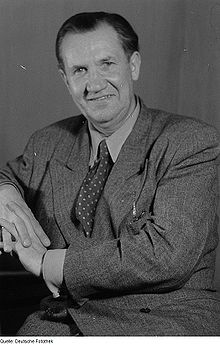 | |
| Born | 14 July 1891 |
| Died | 1 September 1950 (aged 59) |
| Occupation | Actor |
| Years active | 1913–1950 |
Fritz Kampers (14 July 1891 – 1 September 1950) was a German film actor. [1] He appeared in more than 250 films between 1913 and 1950.
Fritz Kampers | |
|---|---|
 | |
| Born | 14 July 1891 |
| Died | 1 September 1950 (aged 59) |
| Occupation | Actor |
| Years active | 1913–1950 |
Fritz Kampers (14 July 1891 – 1 September 1950) was a German film actor. [1] He appeared in more than 250 films between 1913 and 1950.
Fritz Kampers was the son of a Munich hotel owner, spent his early childhood in Garmisch-Partenkirchen and attended a boarding school in Weilheim in Upper Bavaria. After completing secondary school, he completed a commercial apprenticeship in a textile shop in Munich and at the same time took acting classes with Richard Stury, who presided as president of the Munich experimental stage. After appearances at small suburbs in Munich, such as the Alhambratheater, he wandered through the province and finally found engagements in Alzey, Karlsruhe, Lucerne, Sondershausen, Helmstedt and Aachen. During the First World War he served as a cavalryman on the Eastern Front, was wounded, fired and joined the front theaters in Warsaw and Łódź.
During a commitment begun in 1917 at the Munich Volkstheater, Fritz Kampers got to know the director Franz Seitz, who gave him some film engagements. Even as a film director, he appeared between 1917 and 1920 in appearance. In The Volkstyrann played under his direction the famous colleague Albert Steinrück the main role. In 1920 he went to Berlin, where he worked for a year as a villain for Gustav Althoff's film company and at the same time on stages such as the Kleinen Schauspielhaus, the Lessingtheater, the German Theater and the Revue Theater "Admiralspalast" occurred. Kampers also became popular as a cabaret artist; For a time he was part of the ensemble of Trude Hesterberg's political-literary cabaret "Die Wilde Bühne".
In the mid-1920s, Fritz Kampers changed roles and played as comic character actor pithy originals and neat soldiers and officers, often with Bavarian influence. The likeable of these guys, whom he successfully portrayed until the end of his film career, was the apparent antagonism of primordial robustness and bluntness on the one hand - Kampers' gestures were thrifty, his short sentences dry and almost deliberate - and wit, cunning, and unexpected depth on the other hand.
The change to the sound film fell to Fritz Kampers easily. He had great roles in Max Obal's comedy "The Merry Musicians" (1930), in GW Pabst's films "West Front 1918" (1930) and "Comradeship" (1931), in "Three of the Stamp" (1932) and "Two Good Comrades "(1933). When many film artists went abroad in 1933 because of the Nazi entry into the government and the film industry was desperately looking for a suitable replacement, Kampers, who occasionally also directed in the period after the First World War, was given the opportunity to stage two of his own films: the Schwank "Konjunkturritter" (1933/34, with White Ferdl and Sabine Peters) and the confusion comedy "I sing 'into my heart" (1934, with Lien Deyers and Hans Söhnker). His acting career he continued under the regime of National Socialism. From 1934 he was part of the ensemble of the Berlin Volksbühne and he also continued to appear in films - including in Nazi propaganda films such as "Three Emperor Hunters" (1933), "The Four Musketeers" (1934), "Holiday on Honor" (1937), "In the Name of the People" (1939), "Robert and Bertram" (1939), "The Fire Devil" (1940), "About Everything in the World" and "Attack on Baku" (1941). Although Kampers 1939 by Joseph Goebbels was appointed a state actor, he seems to have rejected from 1942 on film offers in propaganda films but.
Also in the post-war film Fritz Kampers soon found employment with supporting roles in films like "Sensation in Savoy" and "Schwarzwaldmädel" (1950). Fritz Kampers was one of the most active actors in German film. Between 1918 and 1950 he has been involved in more than 260 films, that is every 17th film produced during this period. His resting place is on the Evangelical Cemetery in Neubeckum.

Carl de Vogt was a German film actor who starred in four of Fritz Lang's early films. He attended the acting school in Cologne, Germany. Together with acting he was also active as a singer and recorded several discs. His greatest hit was "Der Fremdenlegionär". An extremely successful actor in his early career, he died in relative obscurity in 1970.

Géza von Bolváry was a Hungarian actor, screenwriter, and film director, who worked principally in Germany and Austria.
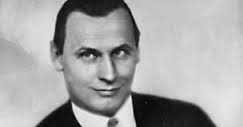
Fritz Heinrich Rasp was a German film actor who appeared in more than 100 films between 1916 and 1976. His obituary in Der Spiegel described Rasp as "the German film villain in service, for over 60 years."
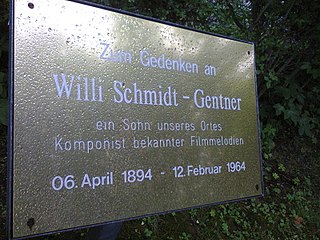
Willy Schmidt-Gentner was one of the most successful German composers of film music in the history of German-language cinema. He moved to Vienna in 1933. At his most productive, he scored up to 10 films a year, including numerous classics and masterpieces of the German and Austrian cinema.
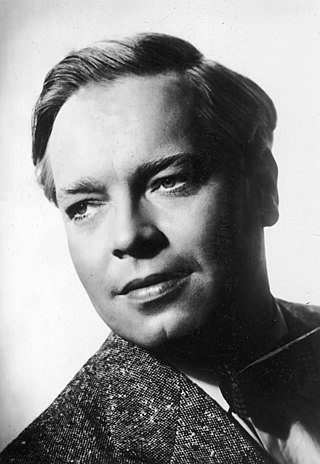
Hans Brausewetter was a German stage and film actor of the silent era. He appeared in more than 130 films between 1922 and 1945. He appeared in the 1923 film The Treasure, which was directed by Georg Wilhelm Pabst. Brausewetter died from injuries sustained in a bomb blast in Berlin during the final days of the Second World War.

Paul Henckels was a German film and stage actor. He appeared in more than 230 films between 1921 and 1965. Paul Henckels had started his acting career on the stage in the 1900s.
Harry Hardt was an Austrian actor. The son of a military officer, he initially planned a military career for himself, studying at a military academy and serving during World War I. He later turned to acting, having a long career both in films and on television.
Carl Eduard Hermann Boese was a German film director, screenwriter, and producer. He directed 158 films between 1917 and 1957.
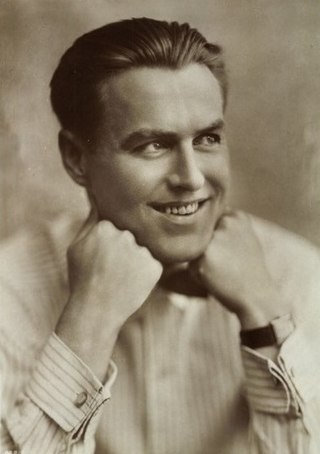
Paul Richter was an Austrian film actor. He owed his great popularity in German films of the silent era largely to the directors Joe May and Fritz Lang.

Ernő Verebes was a Hungarian-American actor who began his career in Hungarian silent films in 1915. During his film career he worked and lived in Hungary, Germany and in the United States. He was born into a Hungarian emigrant family in New York, but his family later returned to Austria-Hungary.
Jakob Karl Heinrich Wilhelm Tiedtke was a German film actor. He appeared in more than 190 films between 1914 and 1955.

Hans Ferdinand Junkermann was a German actor. He was married to the Austrian actress Julia Serda.
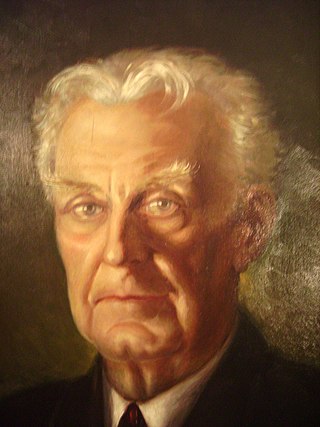
Philipp Manning was a British-born German actor. He was born in Lewisham to a British father and a German mother. He was sent to Germany for his education and settled there. He often played British characters in German films, including in Nazi propaganda ones. He died in Waldshut-Tiengen.
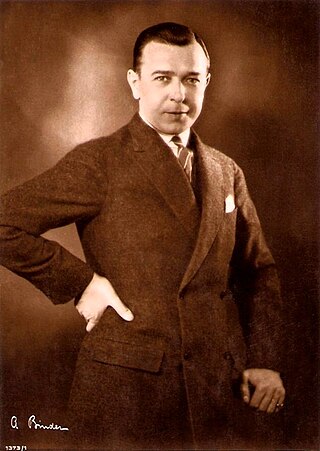
Georg Alexander was a German film actor who was a prolific presence in German cinema. He also directed a number of films during the silent era.
Karl Harbacher (1879–1943) was an Austrian actor.
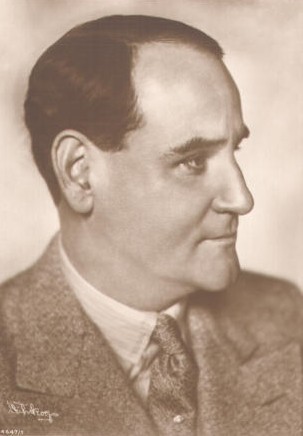
Hans Adalbert Schlettow was a German film actor. Schlettow appeared in around a hundred and sixty films during his career, the majority during the silent era. Among his best-known film roles was Hagen von Tronje in Fritz Lang's film classic Die Nibelungen (1924). In 1929 he starred in the British director Anthony Asquith's film A Cottage on Dartmoor.
Hermann Picha was a German stage and film actor. Picha was extremely prolific, appearing in over 300 short and feature films during the silent and early sound eras. Picha played a mixture of lead and supporting roles during his career. He played the title role in the 1920 film Wibbel the Tailor, directed by Manfred Noa. He appeared in Fritz Lang's Destiny.
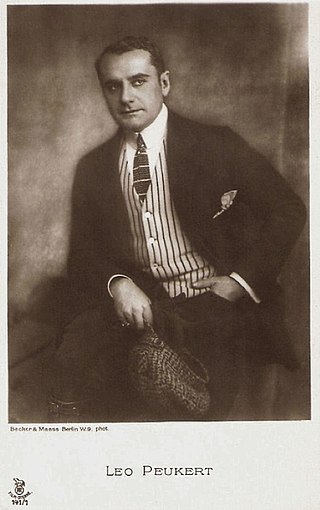
Leonhard "Leo" Peukert was a prolific German film actor and film director, appearing in more than a hundred and fifty productions between 1910 and his death in 1944. While occasionally he played a leading role in his early years, such as the comedy The Happy Journey (1924), he mostly appeared as a character actor. Peukert was also a film director, making eleven short and feature films during the silent era.
Gustav A. Knauer (1886–1950) was a German art director. He designed the sets of more than a hundred films during his career.
Hans Sohnle was a German art director. He frequently collaborated with Otto Erdmann on set designs.